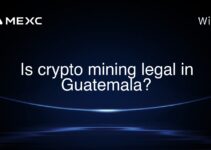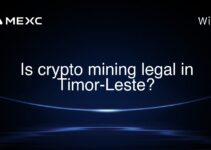No, Vladimir Putin does not control Bitcoin. Bitcoin is a decentralized digital currency, meaning it operates without a central authority or single administrator. The control of Bitcoin is distributed among a global network of nodes and miners who maintain the blockchain, the technology underpinning Bitcoin.
Importance of the Question for Investors, Traders, and Users
The question of whether a single entity, such as a powerful individual or government, controls Bitcoin is crucial for investors, traders, and users. This is because the value proposition of Bitcoin is heavily predicated on its decentralization. The absence of central control is what theoretically makes Bitcoin resistant to censorship, manipulation, and regulatory control, which in turn affects market stability and investment security.
Decentralization of Bitcoin: Real-World Examples and Insights
Global Mining Distribution
Bitcoin’s network is maintained by miners who validate new transactions and add them to the blockchain. As of 2025, Bitcoin mining is more decentralized than ever, with major mining operations spread across various countries including the United States, Canada, Russia, and China. Despite Russia’s significant role in the cryptocurrency mining sector, no single country or individual, including President Putin, has the capability to control the entire Bitcoin network.
Node Distribution
Another layer of decentralization in Bitcoin is the distribution of nodes. These nodes are computers that keep a copy of the blockchain and uphold the network’s rules. As of 2025, there are over 100,000 active nodes distributed globally, ensuring that the network remains decentralized and resilient against attacks or attempts at control.
Protocol Development
Bitcoin’s protocol development is overseen by a diverse group of developers from around the world, further ensuring that no single entity can control the cryptocurrency. Changes to the protocol require widespread consensus among these developers, which is a deliberate design to prevent any form of centralized control.
Data and Statistics on Bitcoin’s Decentralization
According to data from Blockchain.com as of 2025, the top four mining pools control less than 60% of Bitcoin’s total hash rate, a significant drop from earlier years when fewer entities held more concentrated power. This dispersal of mining power is a critical aspect of Bitcoin’s decentralization efforts.
Furthermore, a study by the University of Cambridge in 2025 shows that Bitcoin nodes are spread across over 140 countries, making it one of the most decentralized financial systems in the world. This geographical spread is vital for reducing the risk of any single point of failure or control.
Conclusion and Key Takeaways
In conclusion, Bitcoin remains a decentralized digital currency that no single entity, including political figures like Vladimir Putin, can control. This decentralization is critical for its function as a secure, global digital currency that offers a degree of resistance to censorship and manipulation.
Key takeaways include:
- Bitcoin operates on a decentralized network that includes miners and nodes distributed globally.
- The control of Bitcoin is safeguarded by the collective agreement and technology, rather than any individual or government.
- The decentralization of Bitcoin is a fundamental aspect that enhances its appeal as a secure investment and a hedge against centralized financial systems.
For investors and users, understanding the decentralized nature of Bitcoin is essential for making informed decisions about engaging with cryptocurrencies and assessing their potential risks and benefits.
DISCLAIMER
Article(s) displayed above is/are generated by artificial intelligence (AI) and may not be manually reviewed by a member of the MEXC team before it is published. The content displayed above does not represent the views of MEXC or its affiliates. Similarly, MEXC does not endorse the accuracy or truthfulness of the above data. Under no circumstance should reliance be placed on the above information. You are recommended to consult a professional, independent advisor where necessary.



